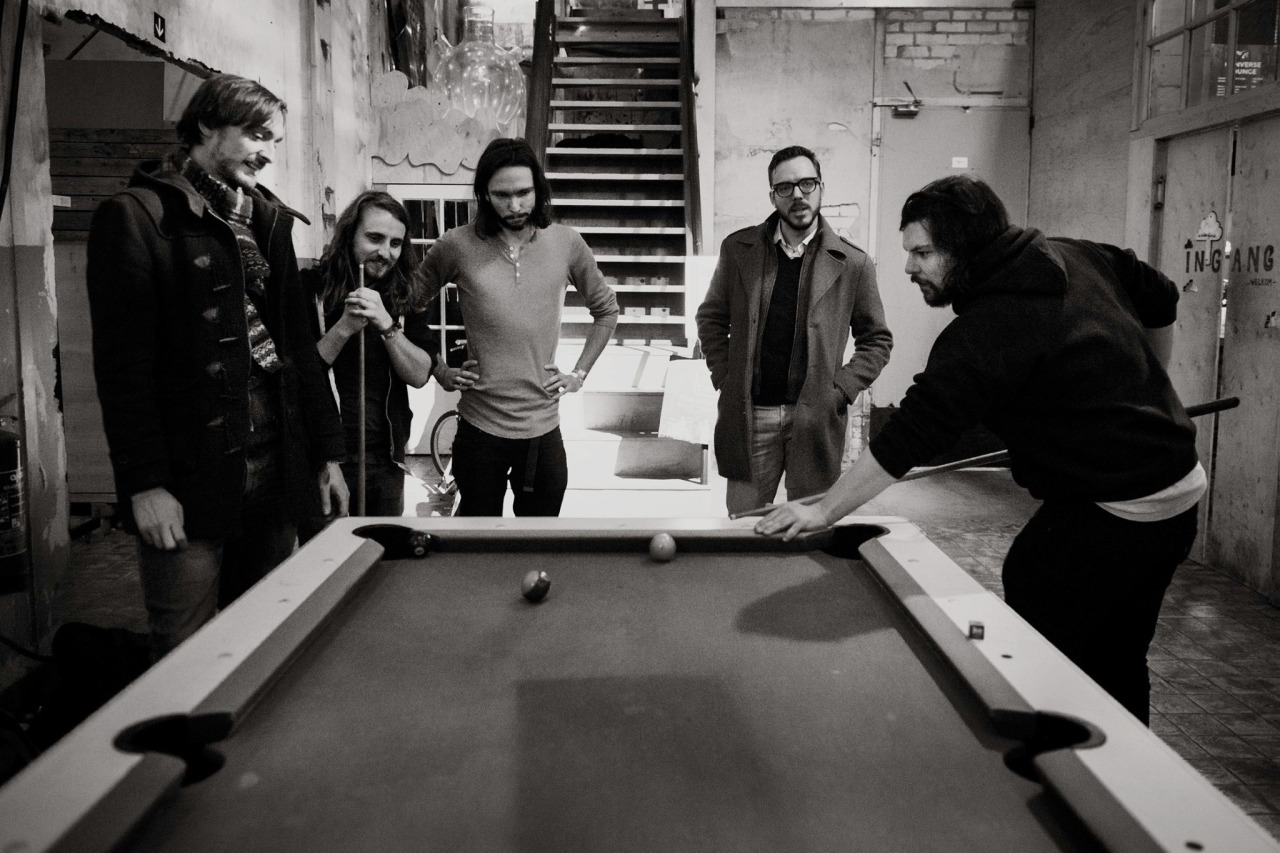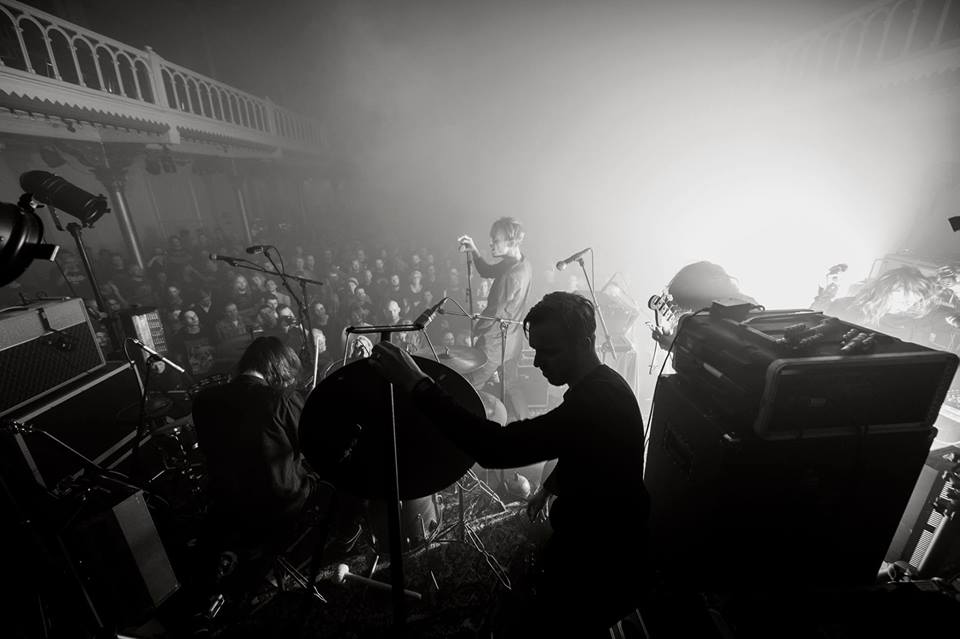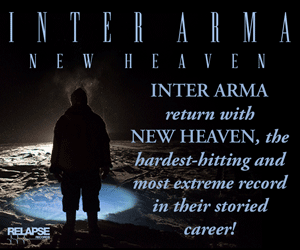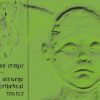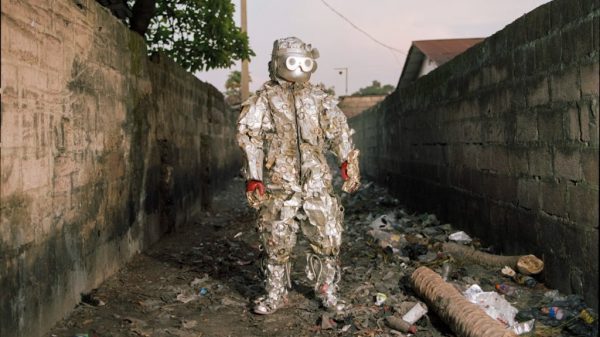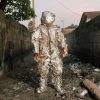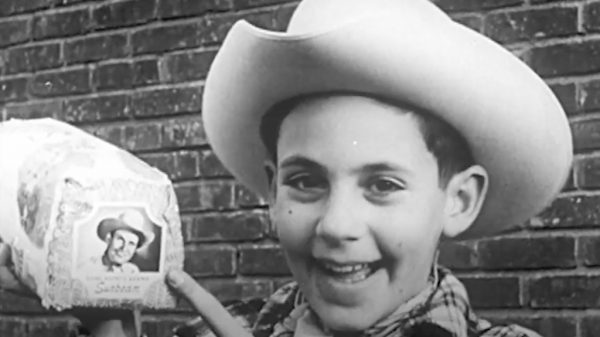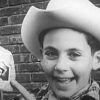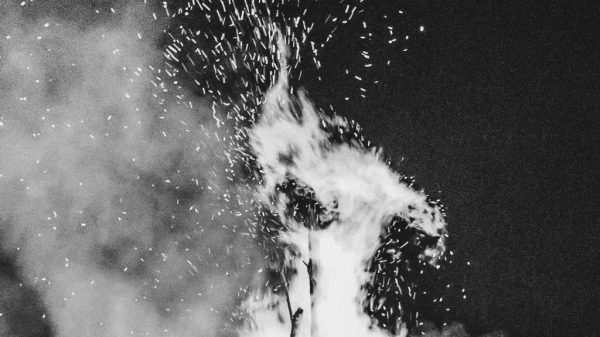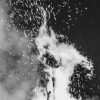Your last record, People, when you see the smoke, do not think it is the fields they’re burning (2015), has a really different sound, much less “conventional” than your first albums (Monologue and the splits), sounding like an evolution of Har Nevo (2012). Do you agree with that? And was this a conscious decision, to make this change starting on Har Nevo and even more so on People…?
Tim Bryon: I definitely agree with that, and yes, to a degree, there is a conscious evolution behind the changes in sound and approach of the songs. But it only became conscious in retrospective, really. TBHR has been in our lives for more than ten years now, and looking back, we have taken quite a long time to experiment and to understand what we were doing and why. I would say for the first four or five years we were trying to make music that fitted some sort of genre. It was a great time for us to explore stages in Europe and play something people called screamo or post-rock. At the time, it did not feel like a phase, though. What you do at one point often feels permanent. I think we have started looking another way at it a couple of years ago when we started thinking about the story we wanted to tell with the successor of Monologue. We had just written and performed a live soundtrack to a theatre play. That project really opened our eyes, but we worked for a year with no tangible result, the performances were temporary. After that, it felt like we had to start all over again, as if we had even lost some time maybe because the last release dated back to Monologue in 2009. We sat down and started talking. Long and confronting talks, because indirectly we were also talking about our lives on a musical, personal and professional level. You could say it was the ‘difficult second album,’ but I think the situation was more profound than that. At that time, very naturally, the topics that were in our heads started seeping into the structures and the sounds we were creating. ‘Evolution’ and the search for a new form became the subject of the band, both musically as well as literally. But it was hard and sometimes uncomfortable. At one point during that period, we were close to ending the band, actually. It was a strange period, but it did open up many more possibilities in our heads. A kind of fin de siècle feeling you only get when you have the feeling there’s nothing left to lose. I think that symbolically saying goodbye to what we had done before was necessary to keep the band alive. The premise was that we were changing as people, and TBHR had to change with us. So we shifted focus from the attempt to make something that already existed to the search for something else and the changes in that process. Songs slowly came into being because we were focusing on the action of writing songs and searching sounds that matched our mood and doubts at that moment. Taking that turn gave us more freedom and really opened our eyes and minds, resulting in ‘change’ as modus operandus for the band. TBHR can evolve in many ways now, and it makes me feel calm and content, knowing that we’ve taken the wheel and can decide every moment where we are heading.
[youtube id=”HjbC_SuTUWs”]
On People… (2015), the drums are probably the heavier instrument, together with the vocals, but not so much the guitar and the bass, which would be the most obvious choices in a more traditional rock band. Still, it’s a really heavy record, at least in its own vibe and melodies. How was the writing process for the album? Did you go into the studio knowing you wanted the songs to sound like this?
This heavy vibe is exactly what we wanted to achieve, but we had no interest in walls of distortion or the ways a traditional rock band, as you call it, would naturally use. That is not a criticism, we just understood we had to find our own voice. And it was there before but we had not used it yet. It feels like we took a step back and looked at what each of us was good at, what we liked about our instruments and how we could use those elements to achieve the sound that grabs us. Looking back, Har Nevo is a ‘rough experiment’ and we feel People… translates even better the ideas we wanted to express on Har Nevo. Why? Because we dared to go further and make more distinct choices in what instrument we wanted to use to create specific atmospheres. We forced ourselves to make more room for every instrument on People…. Meaning that sometimes there is more impact when there is less volume. It’s true that drums play an important role, but it might as well be the absence of drums that creates impact, especially “Flower Bone Ornaments,” “Near to fire for bricks” and “Dorsem” are good examples of that. And we still have a lot to learn about how to make room for each other and maybe for new instruments. To record People… we returned to Koen Gisen. He is most known for recording indie and singer-songwriter stuff and we appearantly were the heaviest band he had worked with when we started talking about recording Har Nevo. That was the best thing that could have happened, because it drove both parties out of their comfort zones and no one had a clear idea of what the result could be. We knew we wanted to return to him with People…because the first time you’re getting to know the space and each other, and you can execute your ideas much better after that first experience. So People… was really written with the unique atmosphere of his studio in mind. It really is a magical place and Koen is an amazing person to work with.
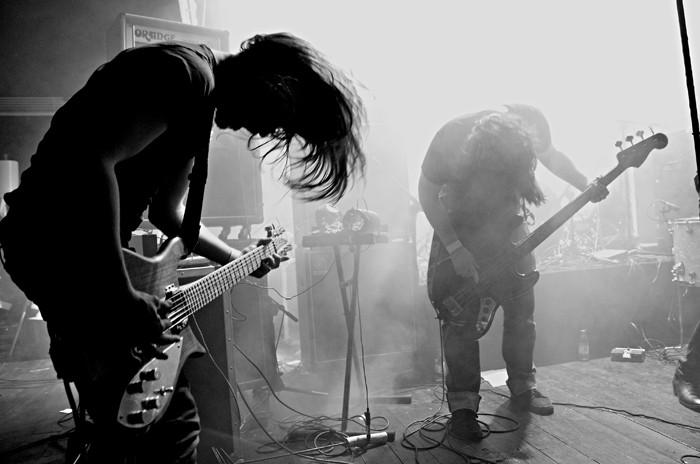
Pedro Roque
Still about the drums – you have a really particular way of playing, very tribal and present all the time, even tough you don’t go for the more traditional beats, specially on the last records. Were you influenced in any way by bands like Neurosis and Sepultura?
I started playing percussion in a music academy, and dropped out after discovering bands like Sepultura. I felt the urge to play heavier music, but the academy was not the place for that kind of stuff. I’m glad I had a basic technical formation, but I’m also glad I’ve left that academic approach to making music. After dropping out, I was just playing as loud as I could, haha. Then I discovered hardcore and metal music and started imitating it. I discovered Neurosis a couple of years after that and their legacy definitely marked me as a musician in the heavy genre. A couple of months after dropping out of the academy, TBHR formed. We were 17-18 years old and just fooling around, really. The tribal vibe in my drumming surfaced much later, during the rough time writing Har Nevo. I understood I felt most comfortable when operating in a zone that is difficult to judge. I took a step back from the conventional drum patterns in underground heavy music and searched for inspiration where percussion really created an atmosphere, rather than just decibels… There may be little traces of it in what I actually play, but bands like Dawanggang, Karantamba and several of the recordings of Alan Lomax (like the prison songs and the album Saraca: funeral music of the Caricayou) really fascinate me. Blending these influences with heavier guitars and vocals brought us to that zone.
The title of your last album, People, when you see the smoke, do not think it is the fields they’re burning, was taken from the death poem of a Zen Monk named Baika, right? The record sure sounds really grim sometimes, but also really beautiful and solemn in other moments. Is this maybe a way we can look at death?
TBHR at this time is not a platform meant to spread a specific message or views on life or death, politics or any other topic. We might go that way someday if we feel the need to, but at this point it works the other way around. For now, it is about the music. The poem explains something we experience when making music, not the other way around. We’ve discovered what became the title of the album a couple of weeks after finishing the recordings and letting the rough takes seep in. It is indeed a poem by a Zen monk, written on his deathbed. He was picturing how passersby could misinterpret the signs (smoke) of his cremation. We felt this message translated a lot of the ideas that are behind the album but also behind the band. The poem is not only about death, confronting you with the idea that death always wins and makes everything literally go up in smoke, but also and maybe even more so about how we look at the world with death as a part of it. What do the passersby think they see and what is the true reality behind those signs? Do they want to see it? The urgency of the poem is impressive because we know it has been written facing death. But without that urgency in our everyday lives it appears so difficult to see the true meaning of everything that happens around us. We think we understand what we see from a distance, but we really don’t. And the fate of every individual changes that game so drastically and constantly with a speed nobody can follow. The poem just scratches the surface, exposing one clear example. I think the poem talks even more about life than about death because of the context of the writer. Imagine this monk that spent years of his life trying to reach enlightment through rigid mental and physical exercise, feeling he has arrived at the end of a stage and calling out to the people to think further than what they see and know that death is real and it is everywhere. I feel blessed and grateful in a way that we can share this insight with the same people, years after the writer passed away. There’s much more wisdom about death in Asian traditions than in the west. I will never forget the opening of a documentary about the Tibetan Book of the Dead: “Death is real, it comes without warning and it cannot be escaped.” So I think Baika shared an interesting insight but it came to us after finishing the album. TBHR, in essence, does not exist to translate and communicate these messages, but somethimes we encounter something that amplifies what we are doing and thinking. That is also why we choose to credit and communicate about it in a very open and transparent way.
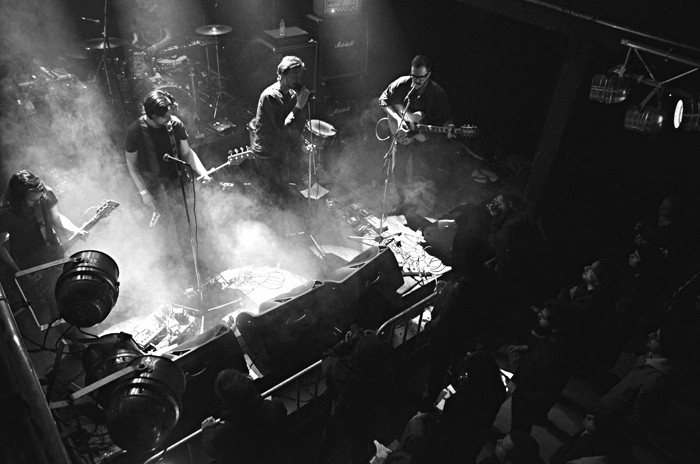
Pedro Roque
Since I talked about the poem, I want to know: what influences you to write music besides other people’s music?
There’s one line in Amen Ra’s Am Kreuz everyone should hang above their beds and stare at for 5 minutes before sleeping: “and now it’s time to make your life worthwhile.”
You’re from Ghent, a kind of small town from Belgium that has some really amazing bands like Amenra, Oathbreaker and Rise and Fall, obviously. Is there something in the water over there? And how is the scene over there and the relation between these bands – you already released a split with Amenra and contributed with Church of Ra?
We feel close to bands that have an honest and deep message. That doesn’t have to be in words per se, it can come in different ways: actions, audible or visual. A lot of bands we feel comfortable with on that level are also close geographically, but I don’t think it’s something in the water, haha. Maybe it is too soon to call it a movement yet. I guess we’ll have a clearer vision on that in a couple of years. But there is a lot going on and we’re definitely influenced by Amenra and other bands that formed at the end of the nineties in Belgium. Rise and Fall didn’t influence us musically, but having them around definitely inspired us to get something started. I think the most important thing that happened between a couple of hardcore bands around Ghent specifically is that around 2010, everybody started helping each other. A simple mindset but with an enormous impact. I started playing in Kingdom with Colin and Ture from RA, Valentijn started doing artwork for Amenra together with Tomas. Tomas, me and Valentijn were releasing stuff through Smoke & Dust Records, Colin was inviting us to hang out on tour and play support shows, etc… this was happening with several bands at the same time. Everyone was working hard on every part of the chain and for every band on the chain. That led to the birth of even more bands with musicians that encountered each other in that way. It is magical and we’re grateful that we’re surrounded by so many creative and collaborative people. Church of Ra is a powerful label and makes a mighty banner to ride under. It has occurred to me that if you want to drink from the source, you also have to contribute to it. There’s a saying: if you want to go fast then go alone, if you want to go far then go with others. Both ways are right in the sense they will both lead to some kind of result. Walking alone is also interesting, but for some years now it definitely feels fulfilling to walk with others now and then. But any label is an attempt to grasp a movement. And movements are fluid and will eventually transform again. This change is inevitable and I am curious to see how it will turn out in a couple of years.
By the way, people have already called you neo folk, dark post rock and things like that, but I really don’t know if it’s possible to put you in any genre. What do you think about this? And do you feel part of any community/scene of bands from Belgium and/or other places of the world?
We’re really not interested in finding the right tag for TBHR. And maybe everyone that is breaking their heads over it should stop it and chill out and listen to People, when you see the smoke, do not think it is fields they’re burning on maximum volume instead?
Please tell me three records that changed your life and why they did it.
Everything from Nick Cave. Everything from Tom Waits. Everything written by the Belgian poet Hugues C. Pernath. The Eye of Every Storm by Neurosis and the Shelter From the Ash by Six Organs of Admittance. I can’t describe how these records changed my life… Please listen to everything on repeat forever, ok!
By the way, when did you start to play drums and who were your “heroes” back then?
I started playing in the local marching band when I was 7 and I got my first drumkit for my birthday in 1997 when I was 10 years old. I’ll never forget that moment when I went to the music store to get it with my father. Precious memories. He made me promise that I would not quit drumming after the first year because the investment was substantial for a kid of my age back then. I’ve kept my promise. I’ve never had drum heroes, never had the attention span to search them out and analyze their styles… Maybe someday I will get into that when I have the time. I have learned the most by looking at drummers at concerts. For years I was only looking at the drummers, and still.
And do you know any bands/artists from Brazil?
We were moshing to Nueva Etica at Ieperfest when we were 16 years old. And Daniel Frota and Pedro Moraes are two great Brazilian artists that we’ve worked with here in Belgium.
What’s the importance of the TBHR in your life?
It has determined so much that it is almost impossible to begin to answer this question. Without TBHR I would not have met Valentijn and Tomas, and we would not have started our own record label Smoke & Dust. Without that, we would not have started our own venue here in Ghent (019). Without TBHR, I might not have met Colin and Ture and started playing in Kingdom. Without Kingdom, I would not have met my wife, and so on…
This is the last one. What are you most proud of in your career?
It is hard to pick anything out of the past. I’m proud of where we are now, everyday. I’m feeling so content with everything and everyone that crosses my path through TBHR, Smoke & Dust, 019. Have respect and stand in your own truth.
